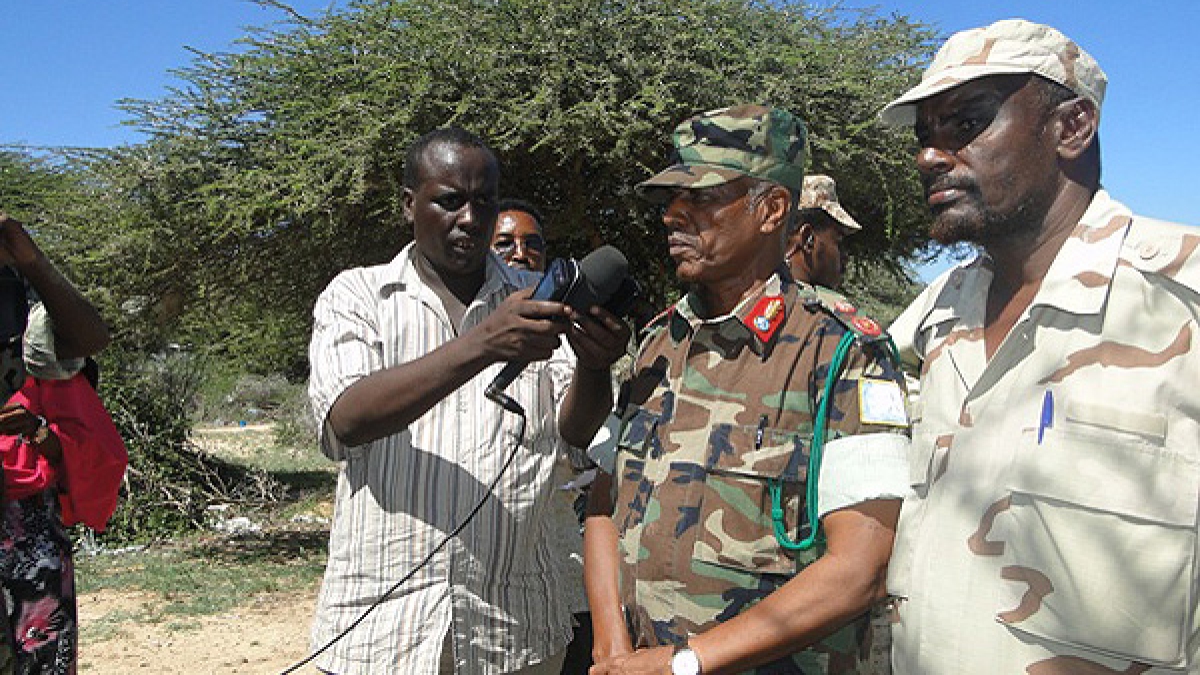Somaila must be saved from its 'leaders'

The death of General Mohammed Farah Aidid, the Somali warlord and the nemesis of the U.S. and U.N. peace-keepers was seen as a development that might help bring peace in Somalia.
Initial reaction by Somali analysts and Africa watchers was that, with Aidid out of the arena, his party and enemies will push for negotiations rather than exchange of bullets and bombs. Aidid's arch enemy, Ali Mahdi Muhammed went on record as saying that he is offering the olive branch to Aidid supporters. He even called for a unilateral cease-fire.
Ali Mohammed's analysis of the situation in Aidid camp was partially accurate. He knew that Aidid's organization would not fall apart nor will there be factional fighting within the group. He also was not convinced by foreign analysts who predicted that Aidid's death was a signal for peace. Somalia had already seen many such signals for peace but they all evaporated.
However, new developments in Mogadishu do not augur well for the future of the poor and suffering people.
The swearing in of the 35-yea-old son of Aidid, Hussein, a former U.S. Marine, is seen as a slap in the face for other leaders and clans. Hussein, in addition to being declared as "president", has also become the leader of the United Somali Congress/Somali National Alliance faction. As crowds cheered him, he vowed to continue "development programs."
But, as crowds cheered, others jeered. On the other side of the "green line", Ali Mahdi Mohammed denounced his new rival warlord and said the decision showed Aidid's family considered Somalia their private property. At the same time, various battles were taking place between different clan, factions and local warlords.
The Arab League which has proved totally ineffective in the Somalia called for a stop to fighting and said it was willing to sponsor a reconciliation conference in Cairo. However, I doubt of anything can be done at present given the blood-thirsty mood of the various clans.
First, many believe that the appointment of Aidid's son was a mistake as rivals perceive it more as a personal control. Secondly, while Ali Mohammed is to be commended for a temporary cease-fire - a more pronounced statement and an act of gesture as sending an envoy to attend Aidid's funeral would have erased some parts of the bitterness and hatred. This, many believe, was a lost opportunity.
As far as the Arab League is concerned, many Somalis think it does not have the right vehicle to carry the Somali reconciliation forward. They point to its total absence in the early stages of the conflict following the ouster of President Siad Barre. They note its eclipse from the Somali political scene since 1991.
The United Nations overshadowed the Arab League and Somalia was more on the agenda of Clinton's breakfast talks with his advisors than its mere mention in Arab League meetings.
The United Sates, with its might, and the United Nations, with its humanitarian concern for the innocent Somali civilians, could not patch up the country. It seems that the Somali warlords are taking sadistic pleasure in destroying what once had the potential and the ingredients to be an economically stable country.
The Somali people, by nature, are peace-loving and want to live a normal life. However, their self-appointed leaders are thinking the opposite. The power-hungry leaders' taste for blood is going on unabated. Their peoples' sufferings in no way has affected them. With money pouring in from different sources, an abundance of arms which the former regime was supplied by both the United States and the former Soviet Union, Somalia is now a killing ground with trigger-happy young men brainwashed by their so-called leaders.
What lesson can be learned from Somali's plight? First, dictatorships should never be supported. Siad Barre's rule robbed Somalia of 20 previous years and deprived the nation of intellectuals like Ghalib Omar Arte. Thousands of other educated people fled the country.
The second lesson is that at the very initial stage itself, as soon as the confusion broke, the Organization of African Unity (OAU) and the Arab League should have intervened quickly. Instead of acting decisively, these two organizations stood on the sidelines, watching and waiting. They failed to muster up their resources and use their clout and prestige to prevent a clash of petty egos from becoming a carnival of death.
Stating all this is now hindsight.
But hindsight is not all bad. It is wisdom gained from experience - the best kind of wisdom there is. Now that the League and the OAU have learned how they should not have acted, they will have a truer perspective of the issue.
They need to show more vigor and determination. They must get involved and convince the Somalis of the consequences of their actions. They should appeal to the Somali ethos and offer their good offices to unite the divided family.
Somalia's blood-bath is one of the most senseless conflicts in history. It is a battle between a people of the same clan, a people sharing the same history, the same culture and the same religion. It is not a war, but a suicide pact.
The League and OAU should be able to convince the people of Somalia to disengage themselves from their embrace of death.

















